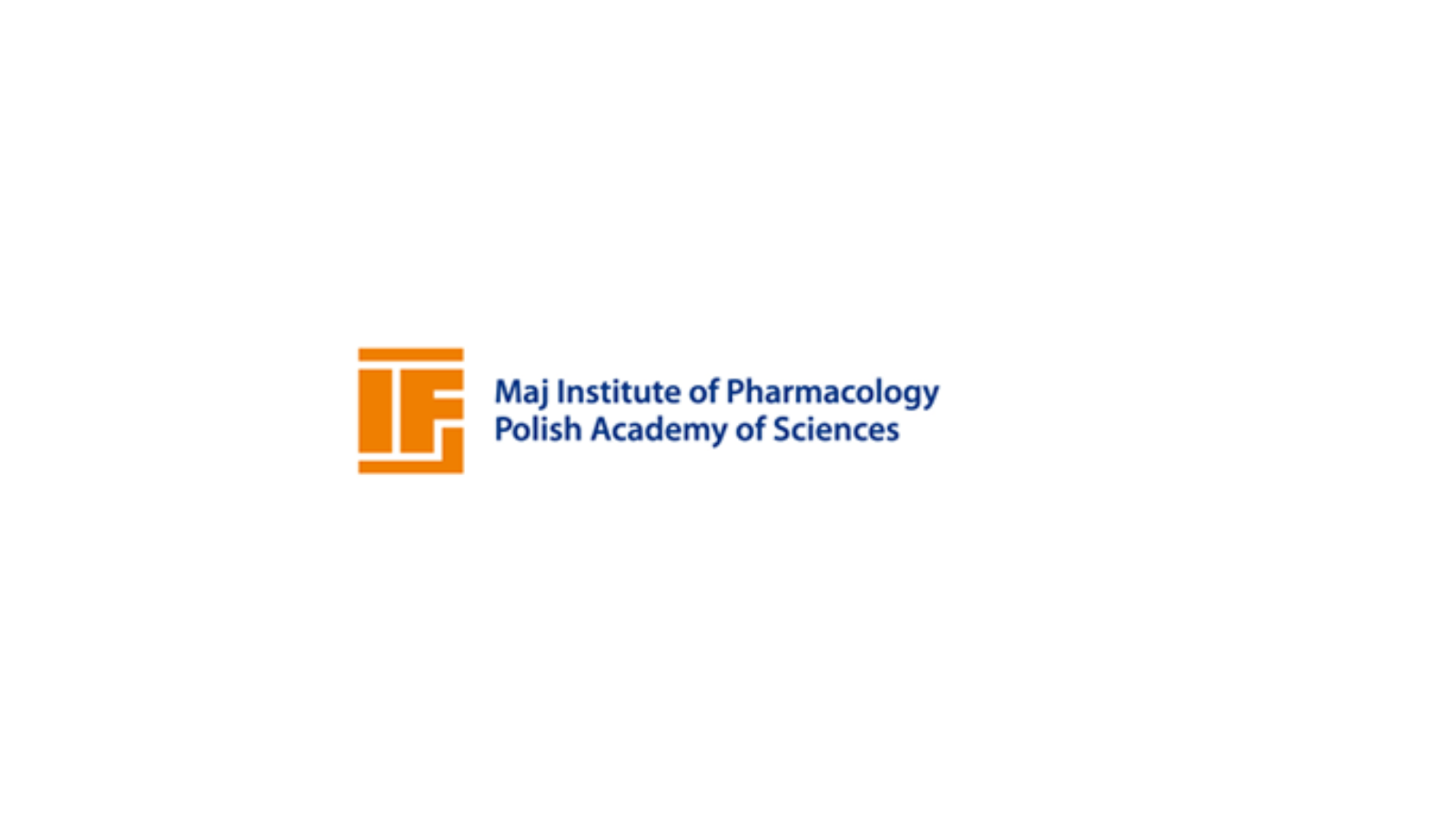
Polish institutes seek partners for Health Horizon Europe Calls 2023/24
Maj Institute of Pharmacology, Polish Academy of Sciences, Kraków, Poland (IP PAS) and the Department of Pharmacokinetics and Drug Metabolism seek other partners interested in the Horizon Europe calls 2023/2024.
HORIZON-HLTH-2023-DISEASE-07-01: European Partnership on Rare Diseases (deadline: 19 September 2023)
HORIZON-HLTH-2024-DISEASE-03-13-two-stage: Validation of fluid-derived biomarkers for the prediction and prevention of brain disorders (deadline for a pre-proposal: 19 September 2023)
HORIZON-HLTH-2024-TOOL-05-06-two-stage: Innovative non-animal human-based tools and strategies for biomedical research (deadline for a pre-proposal: 19 September 2023)
Main areas of expertise of the Department of Pharmacology and Drug Metabolism in the context of the calls:
- measurement of drugs and their metabolite concentration in biological material (plasma, brain, other tissues) using high-performance liquid chromatography (HPLC) with UV or fluorimetric detection and liquid chromatography coupled to LC/ESI-MS/MS tandem mass spectrometry;
- determination of monoaminergic neurotransmitters and their metabolite levels in plasma and brain structures, using high-performance liquid chromatography (HPLC) with electrochemical (coulometric) detection;
- in vitro measurement of cytochrome P450 enzyme activity, using recombinant cytochrome P450 enzymes, liver and brain microsomes, lymphocyte cells, hepatocytes and neuronal cells. Determination of specific substrates related to cytochrome P450 enzymes and their metabolites formed during enzymatic reaction using high performance liquid chromatography (HPLC) with UV or fluorimetric detection and liquid chromatography coupled to tandem mass spectrometry (LC/ESI-MS/MS);
- measurement of brain and liver expression of cytochrome P450 genes, nuclear receptors and transcription factors (Western blotting, qRT-PCR);
- determination of serum hormones and cytokines (ELISA).
Maj Institute of Pharmacology, Polish Academy of Sciences specialising in neuro- and psychopharmacology. Scientific investigations focus on the nervous system disorders and the search for new biologically active substances that act on the central nervous system and can be used in the treatment of neurological and psychiatric conditions. The Institute’s research priorities include depression, schizophrenia, chronic pain, drug and natural rewards and addiction. Further, study areas involve anxiety, post-traumatic stress disorder, neurodegenerative and immunoendocrine processes and phytochemistry. The Institute’s scientific activity promotes the search for innovative therapeutic strategies and biomarkers of certain pathological processes in the central nervous system using genomics, proteomics and transcriptomics. Modern infrastructure and broad spectrum of in vitro and ex vivo research technics, such as flow cytometry, mass spectrometry, confocal and fluorescence microscopy, optogenics, microdialysis, chromatography, immunohistochemistry, modern electrophysiological methods, transgenic models and bioinformatics tools, available in the Institute, enable study of brain function at multiple levels.
Maj Institute of Pharmacology (Polish Academy of Sciences) and the Department of Pharmacokinetics and Drug Metabolism are interested in joining the existing or planned consortium. Their experience and commitment will help with many research tasks. They have a strong methodological background and use advanced techniques to help achieve the necessary expected outcomes. Their expertise is extensive, as described above.
Expected Outcomes:
HORIZON-HLTH-2023-DISEASE-07-01: European Partnership on Rare Diseases (deadline: 19 September 2023) - They are able to determine the pharmacokinetic parameters of new drug candidates, their metabolism and the effect on the metabolism of other drugs (DDI) in in vitro and in vivo tests/models in the liver, brain, lymphocyte cells and other tissue. Their involvement will be required in the first stages of the project.
HORIZON-HLTH-2024-DISEASE-03-13-two-stage: Validation of fluid-derived biomarkers for the prediction and prevention of brain disorders (deadline for a pre-proposal: 19 September 2023) - They are able to perform comprehensive proteomic and transcriptomic analyzes of patient samples.
HORIZON-HLTH-2024-TOOL-05-06-two-stage: Innovative non-animal human-based tools and strategies for biomedical research (deadline for a pre-proposal: 19 September 2023) - They are able to provide innovative solutions in the field of cell culture in 3D, in particular, we offer willingness and assistance in developing spheroidal hepatocyte and neuronal cell cultures. In addition, they can determine the long-term effects of the new substances/compounds on these created systems, in particular, their impact on cell viability, function, and metabolism.
CONTACT PERSON
Dr Przemysław Jan Danek, PhD, Assistant professor (danek@if-pan.krakow.pl)
- Adrianna Frankowska
- 18 July 2023
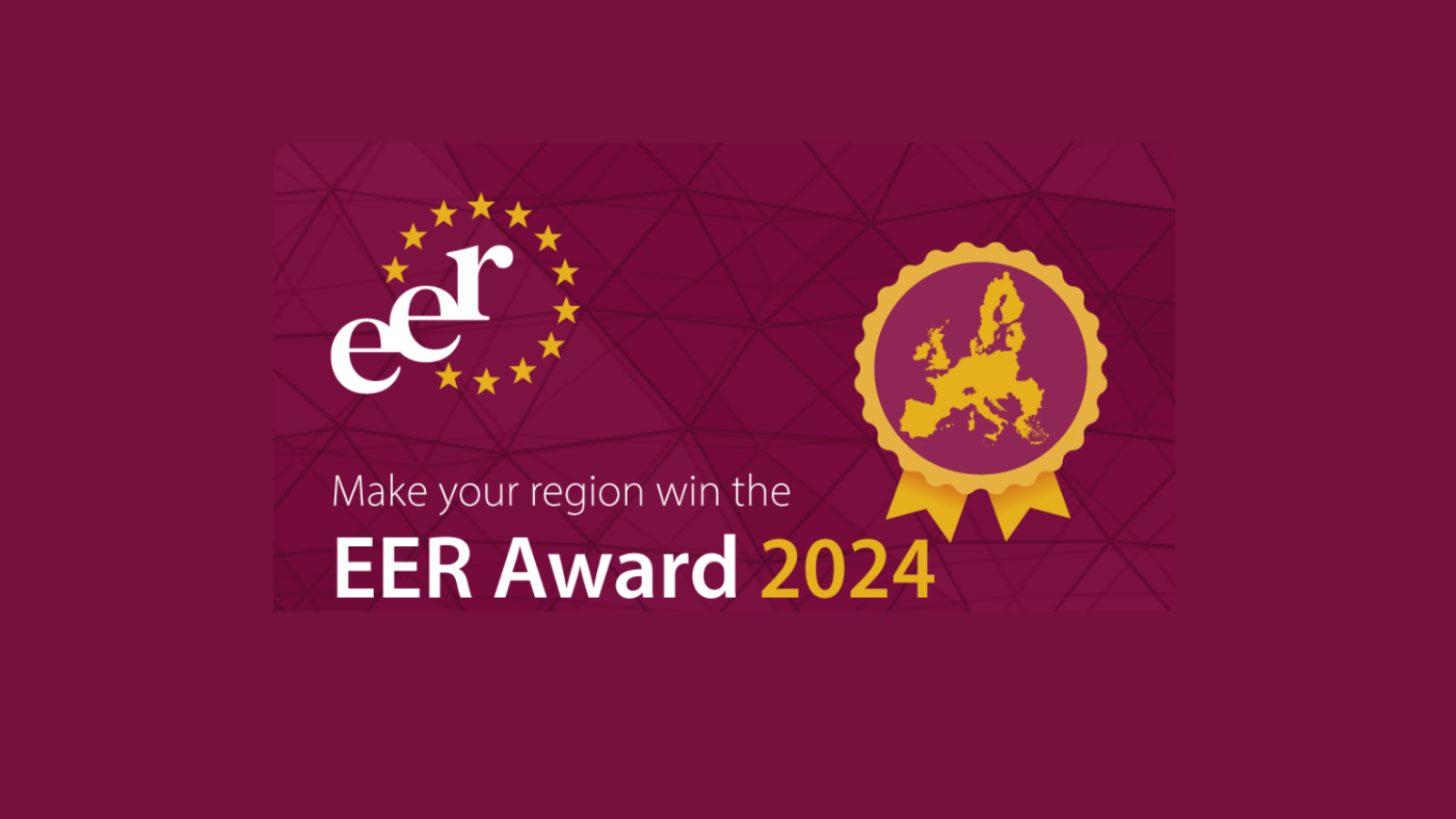
Two ERRIN members win European Entrepreneurial Region (EER) 2024
Congratulations to ERRIN members, South Moravia and the City of Brno (Representation of the South Moravian Region to the EU) and Regione Autonoma Friuli Venezia Giulia on winning the European Entrepreneurial Region 2024 award!
The European Entrepreneurial Region (EER) award is a recognition given to EU territories that show an outstanding and innovative entrepreneurial policy strategy. This award highlights the region's political dedication to strengthening entrepreneurship and sustainable growth.
Friuli Venezia Giulia was awarded for its commitment to transform its industrial and productive system towards the Industry 5.0 paradigm, centred on human progress and well-being, tailored to achieve climate neutrality by 2045 as set out in the Regional FVGreen strategy.
South Moravia and the City of Brno were awarded for their efforts to make the region "Home for Globally Successful Entrepreneurs", by developing tailored activities supporting entrepreneurs across the entire funnel, from students and pre-entrepreneurs to start-ups, scale-ups and global champions.
Another ERRIN member, the Malopolska Region, also received an honorary special mention for setting up a regional hub supporting Ukrainian businesses.
Learn more here.
- Lucy Hammond
- 18/07/2023
-
Working Group

ERRIN and POLIS explore Urban Nodes in the TEN-T Regulation
On 6 July, the ERRIN Transport Working Group and POLIS organised a meeting on the impact of the revised TEN-T regulation on the urban nodes. The focus was also put on the role of the Connecting Europe Facility in effectively implementing the new requirements at local and regional levels.
During the session, Herald Ruijters, Acting Deputy Director-General and Director of Investment for Innovative & Sustainable Transport at DG MOVE European Commission provided valuable insights into the revised Trans-European Transport Network (TEN-T) legislation, which places greater emphasis on urban nodes. ‘Urban nodes’ refers to areas where different components of the transport infrastructures of the TEN-T, such as ports, passenger terminals, airports, railways stations, bus terminals and logistic platforms, are interconnected with each other. The revised TEN-T regulation aims to enhance the integration of 424 urban nodes, fostering innovation to improve Europe’s transport capacity, sustainability and competitiveness.
Herald Ruijters provided an overview of various financial instruments, including the ERDF, Cohesion Fund, Recovery and Resilience Facility, and Connecting Europe Facility (CEF), which are available for Urban Nodes to develop the physical and digital infrastructures needed in the coming decades.
As suggested by Herald Ruijters, a follow-up meeting may be organised in the coming months to further explore the funding opportunities for regions and cities in innovative sustainable mobility projects.
POLIS and ERRIN have been longstanding proponents of enhancing synergies among financial support instruments, emphasising the need for improved collaboration and integration of Transport-Energy-Digital projects. Additionally, both networks are actively backing the establishment of an "Urban CEF," which would offer greater and more substantial support specifically tailored to projects related to urban nodes. Further details can be found in the accompanying press release.
For more information, please refer to the attached document.
ERRIN’s members can access the event supporting documents here.
Since 2019, POLIS and ERRIN have collaborated to support local and regional stakeholders in discerning proposed legislative changes and advocating for their specific needs at the European level. Together, they have provided feedback and recommendations to the European Commission and European Parliament on the definition, components and requirements on Urban Nodes and TEN-T regulation. Last year, the two networks released proposals for concrete amendments to the legislation, addressing the concept of a functional urban area, the SUMP requirements and data collection.
- Lucy Hammond
- 17/07/2023
-
Working Group
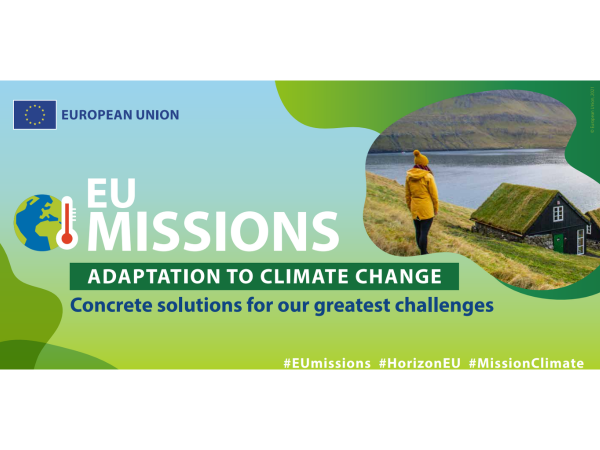
Call for regions to join a project proposal on health risks caused by climate change (HORIZON-MISS-2023-CLIMA-01-03)
ERRIN is seeking expressions of interest from regions to join an existing consortium under the call "Testing and demonstrating transformative solutions to build resilience to health risks caused by the effects of climate change" (HORIZON-MISS-2023-CLIMA-01-03).
The project proposal aims to address the critical need for climate resilience in the context of health and human well-being. By actively involving regions, local authorities and communities, this initiative aims to develop and test a wide range of transformative solutions to mitigate the adverse effects of climate change on public health. The project also aims to strengthen the climate resilience of the public health sector, making it better prepared to address climate change-related health challenges.
The coordinator is currently looking for 4 different regions/local authorities/communities in at least 3 different Member States and/or Horizon Europe associated countries from the Mediterranean bio-geographical region where the solutions will be demonstrated. It is also looking for 3 "replicating" regions/local authorities/communities interested in re-applying the lessons learned.
If you are interested, please send an email to ryan.titley@errin.eu and silvia.ghiretti@errin.eu by Monday 31 July.
- Silvia Ghiretti
- 17 July 2023

Culture & Creativity Cluster mapping: express you interest in the upcoming calls
The Cultural Heritage & Tourism Working Group is planning a project development session on 14 September 2023 in Brussels, alongside the Design & Creativity Working Group and the NEB task force.
The session will focus on calls in the field of culture, creativity, and cross-cutting areas such as tourism, circular economy and design with deadlines in early 2024.
With the aim of creating an excellent opportunity for our members to connect and strengthen potential consortia, we invite all ERRIN members and their regional ecosystems to express their interest through the survey below by Monday 4 September.
The survey is intended to identify the interest and type of role that members expect to undertake in a consortium. ERRIN members are also encouraged to share this call with their local ecosystem (e.g. universities, research centres, private companies) and express interest on behalf of their stakeholders.
You can find more information on the calls included in the survey:
- HORIZON-CL2-2024-HERITAGE-01-01: New European Bauhaus – Innovative solutions for greener and fairer ways of life through art and culture, architecture and design for all
- HORIZON-CL2-2024-TRANSFORMATIONS-01-08: Arts and cultural awareness and expression in education and training
- HORIZON-CL2-2024-HERITAGE-01-03: Leverage the digital transition for competitive European cultural and creative industries
- HORIZON-CL6-2024-CircBio-01-4: Systemic circular solutions for a sustainable tourism
- HORIZON-CL6-2024- COMMUNITIES-01-1: Unlock the potential of the New European Bauhaus in urban food system transformation
- HORIZON-CL6-2024-CLIMATE-01-5: Climate-smart use of wood in the construction sector to support the New European Bauhaus
- Francesca Pozzebon
- 17 July 2023

Circular economy: improving design and end-of-life management of cars for more resource-efficient automotive sector
The Commission is proposing measures to enhance the circularity of the automotive sector, covering the design, production and end-of-life treatment of vehicles. This initiative will improve access to resources for the EU's economy, and contribute to the EU's environmental and climate objectives while reinforcing the single market and contributing to addressing the challenges associated with the ongoing transformation of the automotive industry.
The proposed regulation is replacing the current Directives on end-of-life vehicles and on reusability, recyclability and recoverability. It is expected to have substantial environmental benefits, including an annual reduction of 12.3 million tons of CO2 emissions by 2035, better valorisation of 5.4 million tons of materials, and increased recovery of critical raw materials. The implementation of the regulation will lead to long-term energy savings at the manufacturing stage, reduced dependency on imported raw materials, and the promotion of sustainable and circular business models.
The Commission has revised the existing legislation and proposes a single regulation that focuses on several key elements to improve quality in design, collection, and recycling while facilitating reporting obligations:
- Design circular: Enhancing circularity in the design and production of vehicles will help to ensure these can be easily dismantled. Car makers will need to provide clear, detailed instructions for dismantlers on how to replace and remove parts and components during the use and end-of-life stage of a vehicle.
- Use recycled content: 25% of the plastic used to build a new vehicle will be required to come from recycling, of which 25% must be recycled from end-of-life vehicles.
- Treat Better: The measures will lead to recovering more and better-quality raw materials, including critical raw materials, plastics, steel and aluminium. 30% of plastics from end-of-life vehicles should be recycled. Additional measures will support the market for the reuse, remanufacturing and refurbishment of parts and components of a vehicle. Member States are encouraged to provide incentives to garages and repair shops to support the sale of spare parts.
- Improve governance: The new rules will reinforce producer responsibility by establishing national Extended Producer Responsibility schemes under uniform requirements. These schemes will aim to provide proper financing for mandatory waste treatment operations, incentivise recyclers in improving the quality of recycled materials from end-of-life vehicles, thus fostering enhanced cooperation between treatment operators and manufacturers.
- Collect more and smarter: To put a stop to vehicles disappearing, the proposal foresees better enforcement of the current rules and increases transparency. This means more inspections, digital tracking of end-of-life vehicles across the EU, better separation of old cars from end-of-life cars, more fines for infringements, and a ban on exporting used vehicles that are not roadworthy.
- Cover more vehicles: The scope of these measures will be gradually expanded to include new categories such as motorcycles, lorries, and buses, ensuring more comprehensive coverage.
Next steps
The Commission's proposal for a regulation on circularity requirements for vehicle design and on the management of end-of-life vehicles will now be considered by the European Parliament and the Council in the ordinary legislative procedure.
Find out more about the Proposal here.
- Astrid Hannes
- 14/07/2023
-
Working Group
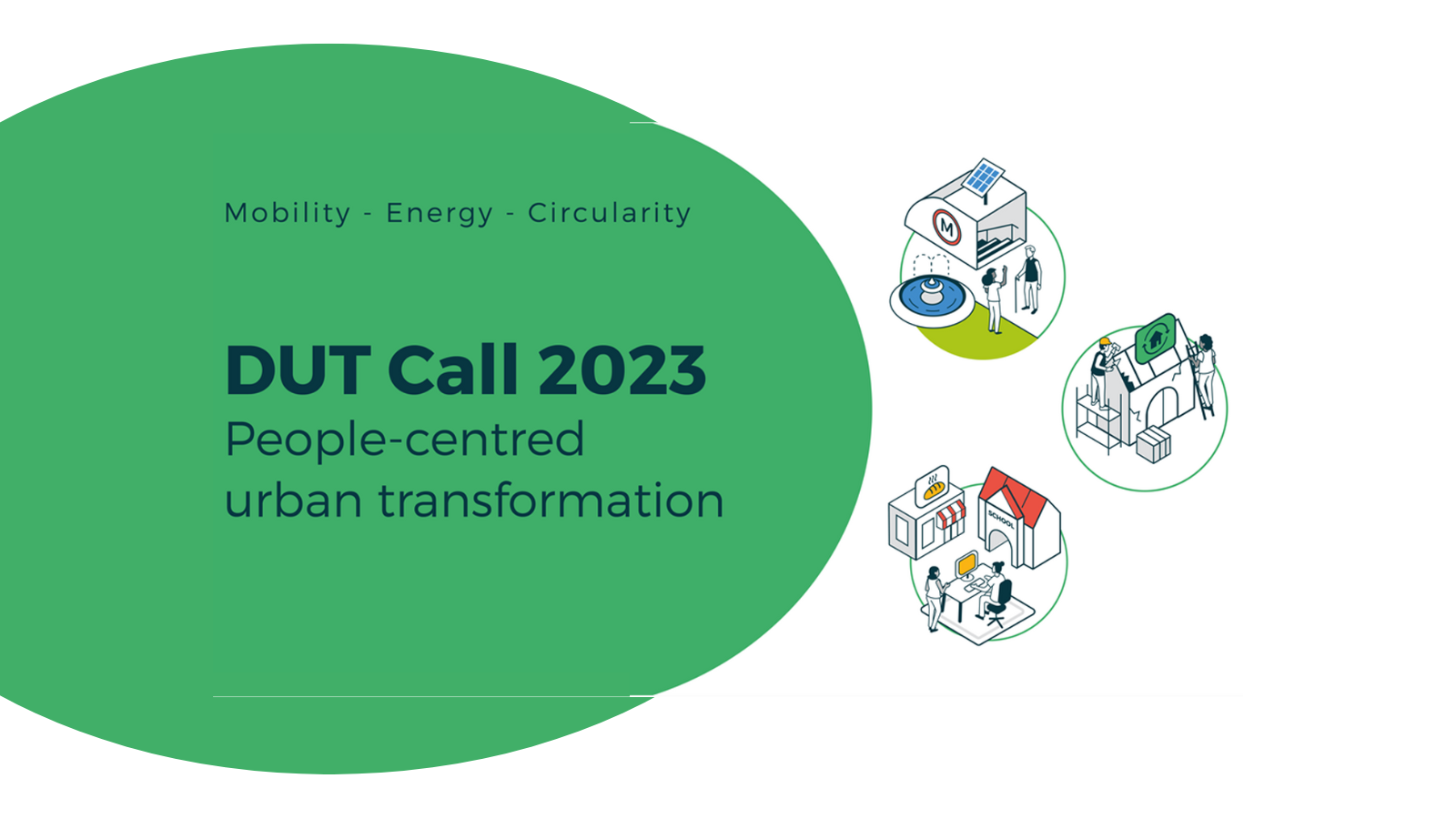
DUT Call 2023 to open in September
The second call of the European Partnership Driving Urban Transitions (DUT) will open on 1 September 2023. The call topics can already be consulted on the DUT website. The upcoming call aims to support transnational research and/or innovation projects to help cities in their urban transformations in the fields of circularity, mobility and energy. The call topics have been aligned with the Mission on 100 Climate-Neutral and Smart Cities by 2023, as well as with the Urban Transitions Mission of Mission Innovation.
An online info day session will be organised on 12 September 2023. More information on this session will be published on the DUT website. Interested applicants can also use the matchmaking platform to meet potential cooperation partners.
- Heidi Johansson
- 13/07/2023
-
Working Group
The Institute of Human Genetics - Polish Academy of Sciences is looking for a coordinator and additional partners for HE call "Tools and technologies for a healthy society"
- Lucy Hammond
- 12/07/2023
-
Funding Programme
-
Deadline for Expression of Interest31 August 2023
-
NameAgnieszka MozejkoOrganisation Namelukasiewicz
- Get in Touch
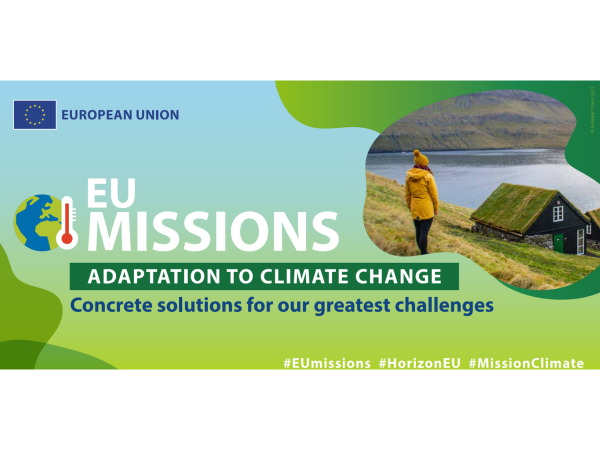
Calls for Twinning Regions for a Project Proposal under HORIZON-MISS-2023-CLIMA-01-02
ERRIN is calling for expressions of interest from regions interested in joining a consortium under the call HORIZON-MISS-2023-CLIMA-01-02. This call focuses on "Testing and demonstrating transformative solutions to protect critical infrastructure from climate change, mainstreaming nature-based solutions”.
The coordinator is currently looking for one or two twinning regions to complete the consortium. If you are interested, please send an email to ryan.titley@errin.eu and silvia.ghiretti@errin.eu by Thursday 20 July.
- Silvia Ghiretti
- 12 July 2023
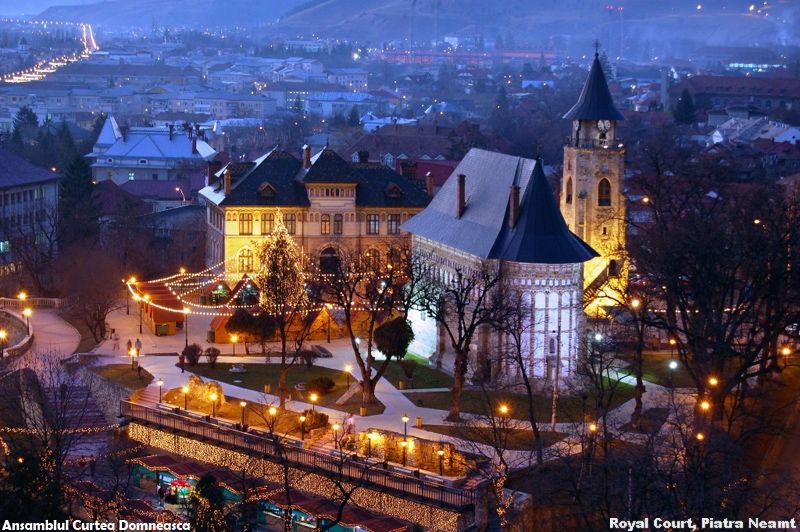
Piatra Neamt Municipality is seeking a city to partner with for the European Urban Initiative City-to-City exchange call.
Project Title: Navigating Challenges - A City Exchange Initiative on Implementing Urban Mobility Projects
Project: City-to-City Exchange European Urban Initiative
Project Description:
The project will focus on arranging site visits with the partner city that has successfully implemented urban mobility solutions.
These visits will provide an opportunity for officials from the Municipality of Piatra Neamț to see firsthand the various strategies that have been put into practice, and understand the factors behind their success. It will serve as a source of inspiration and practical knowledge, helping them to design and implement local actions and policies to resolve the urban mobility challenges in their city.
Deadline: If you know a municipality that aligns with the objectives of this project and possesses relevant expertise, express your interest by contacting alis.socea@adrnordest.ro, North East Romania Regional Development Agency, Brussels Office, before the deadline of 21 July 2023.
- Alis Socea
- 11 July 2023